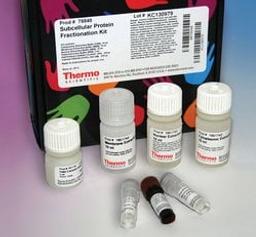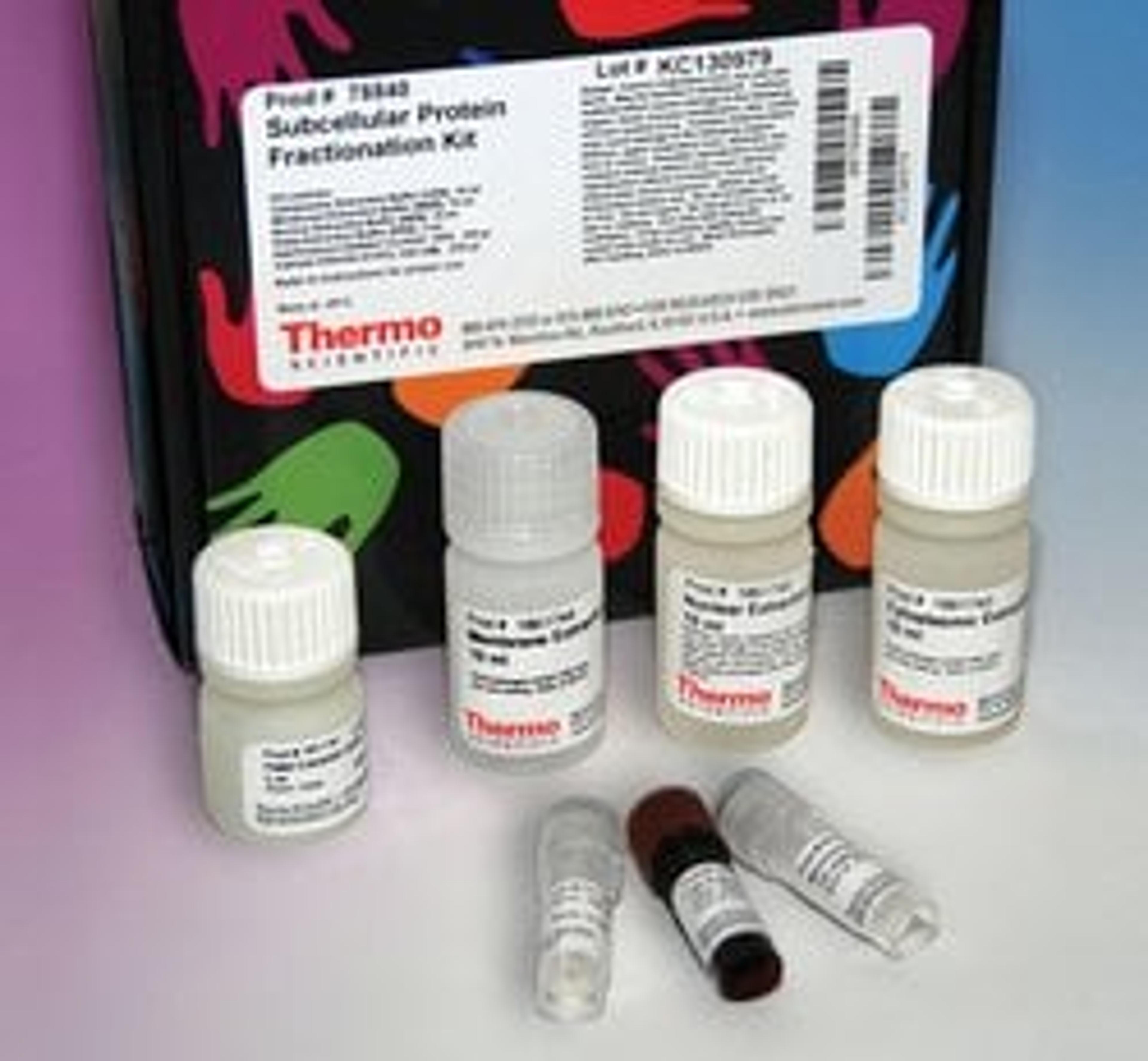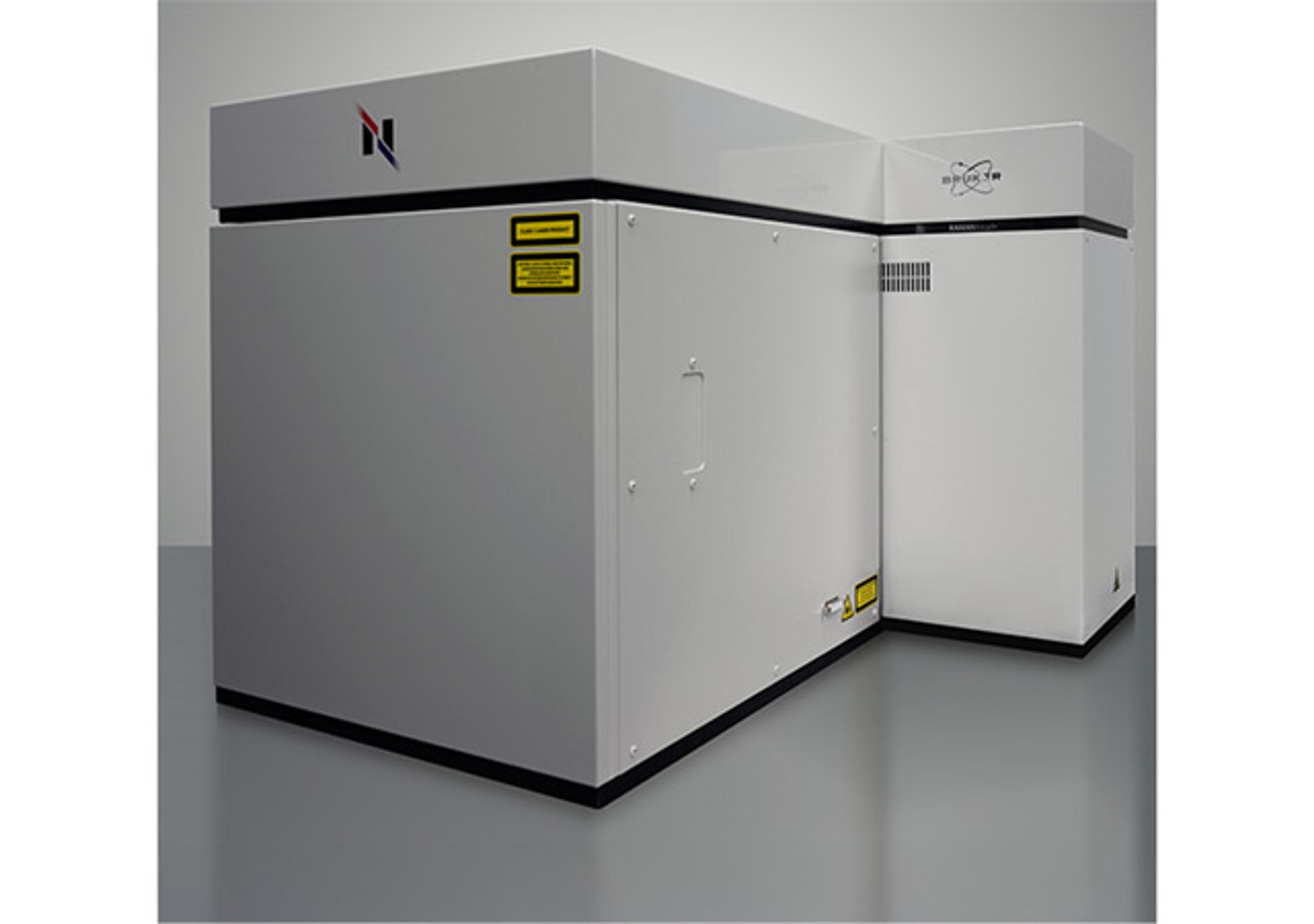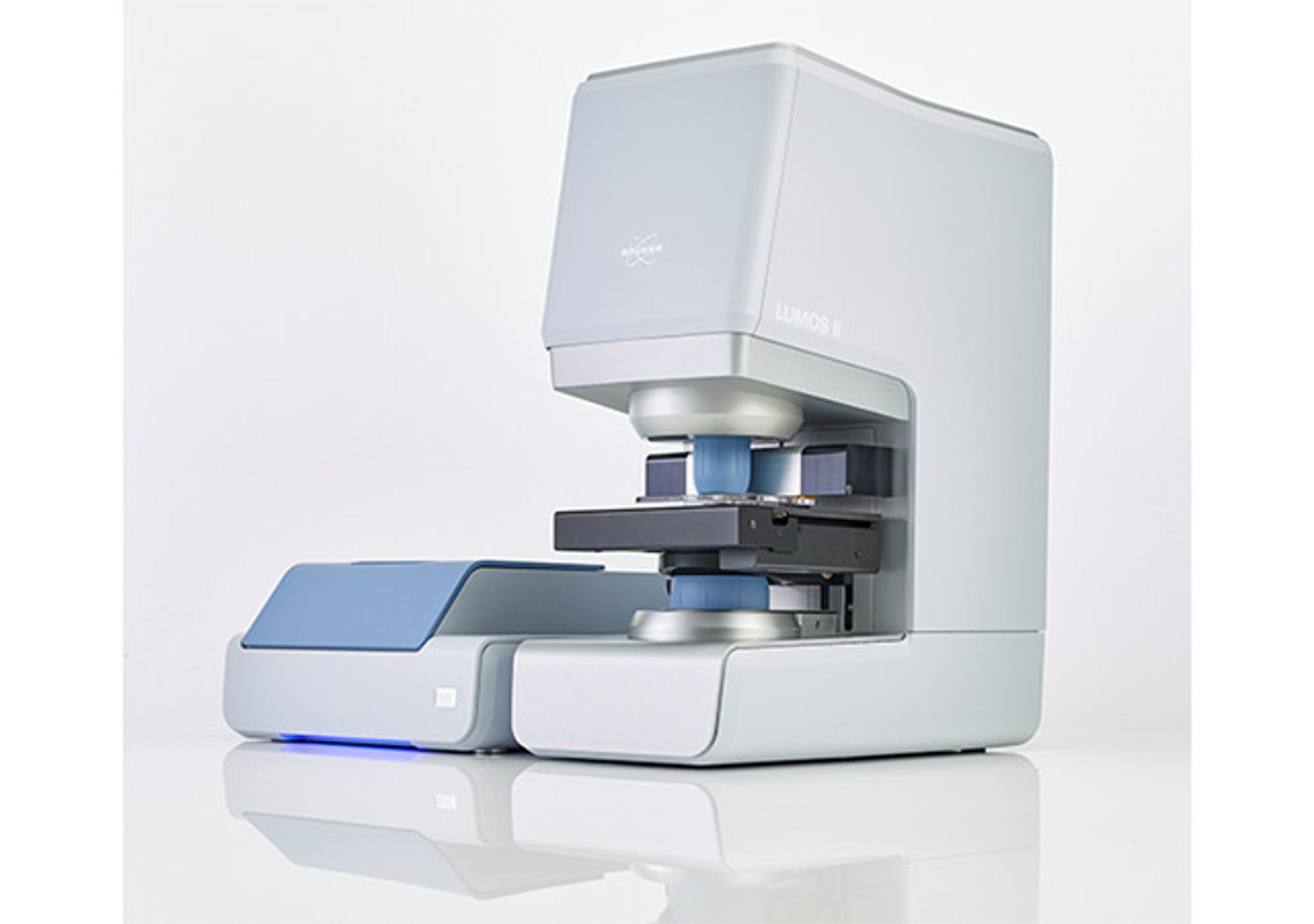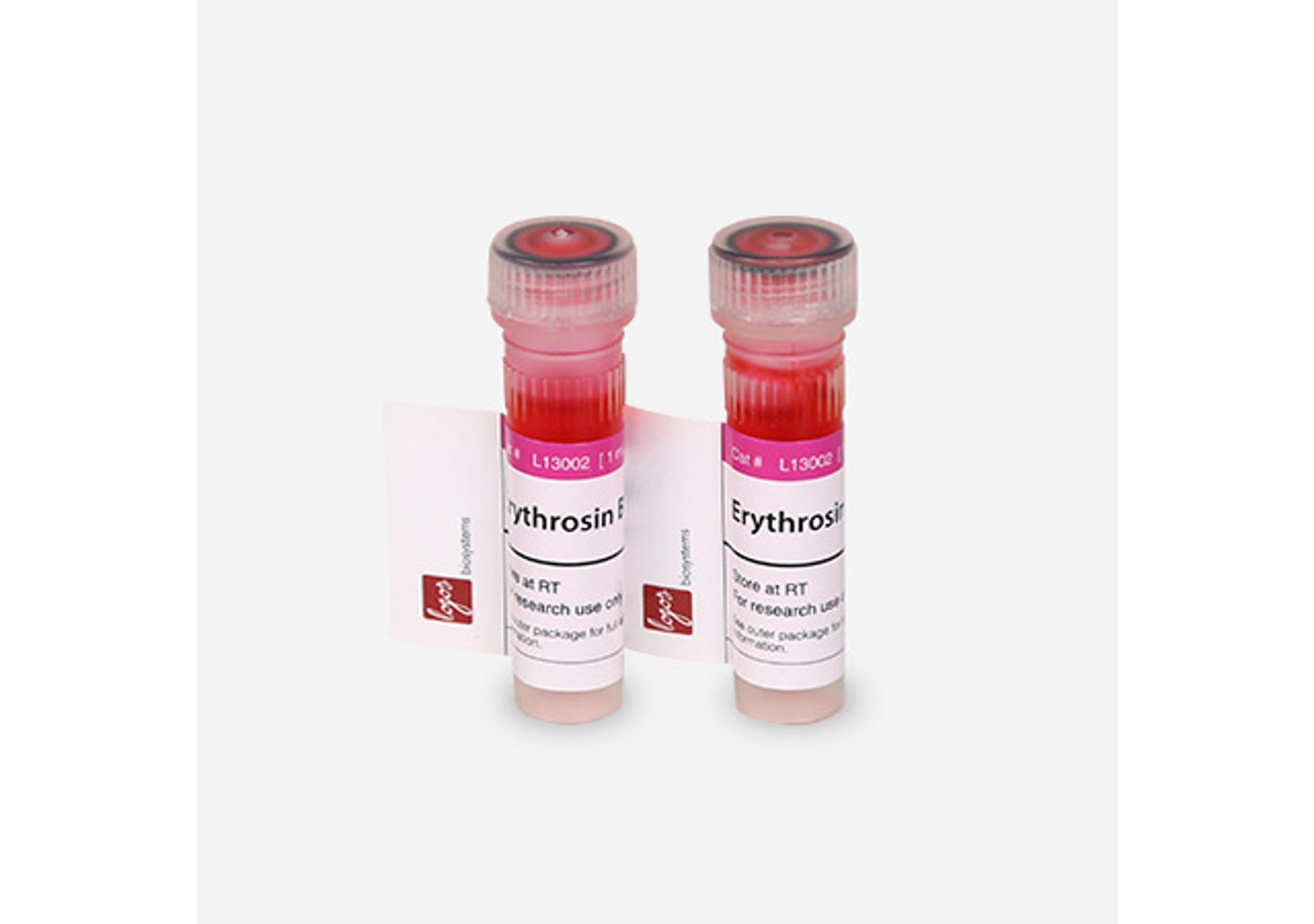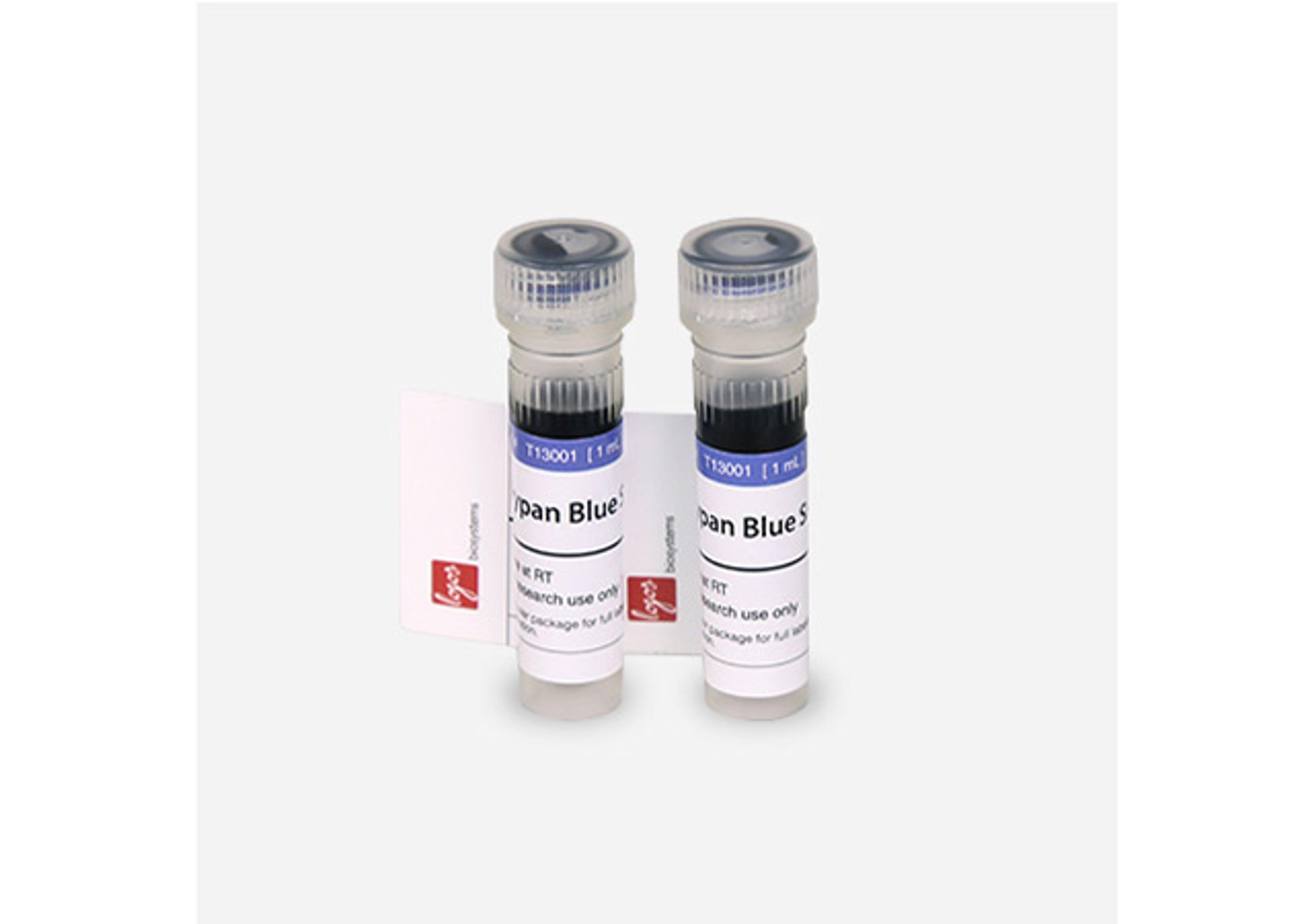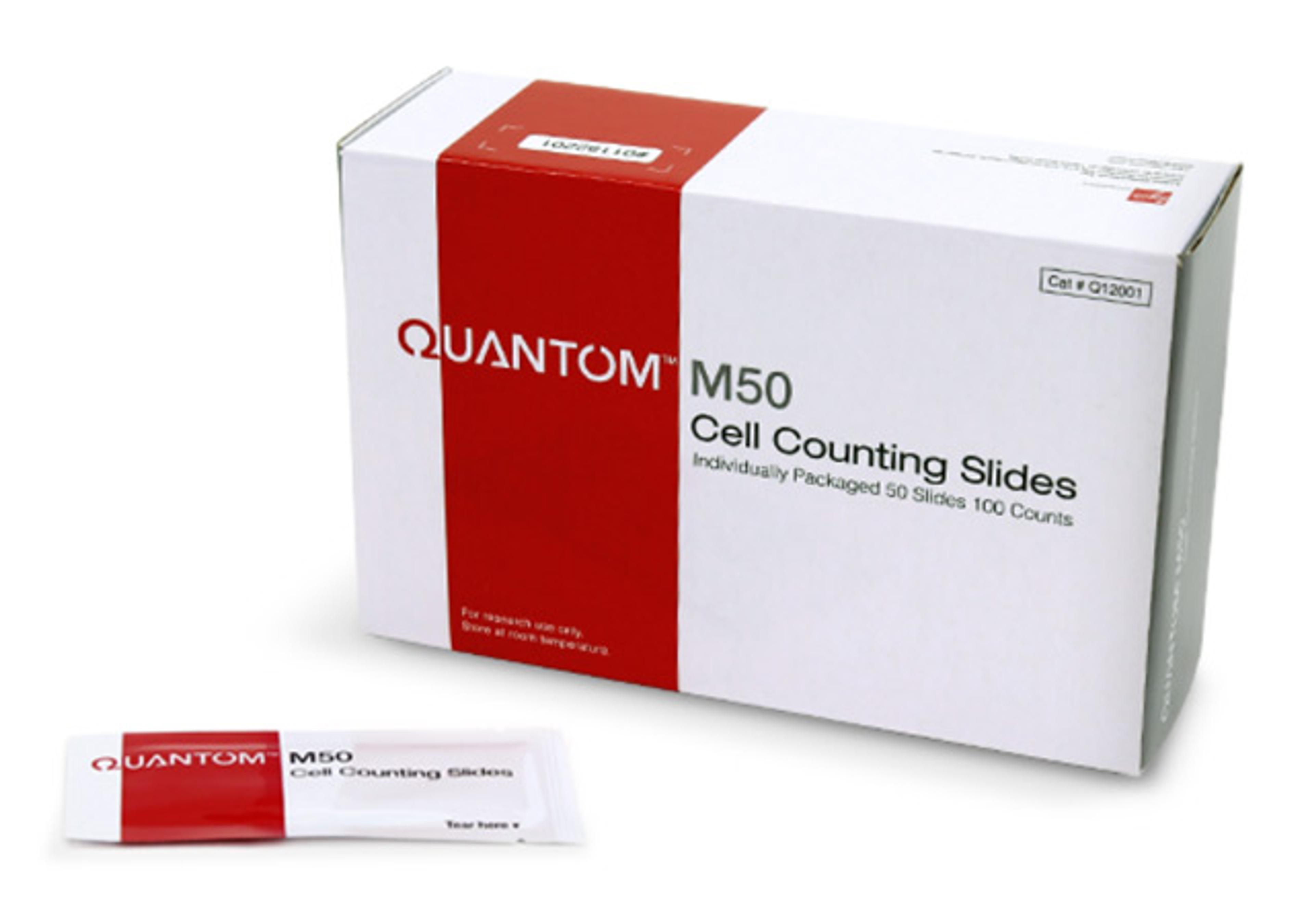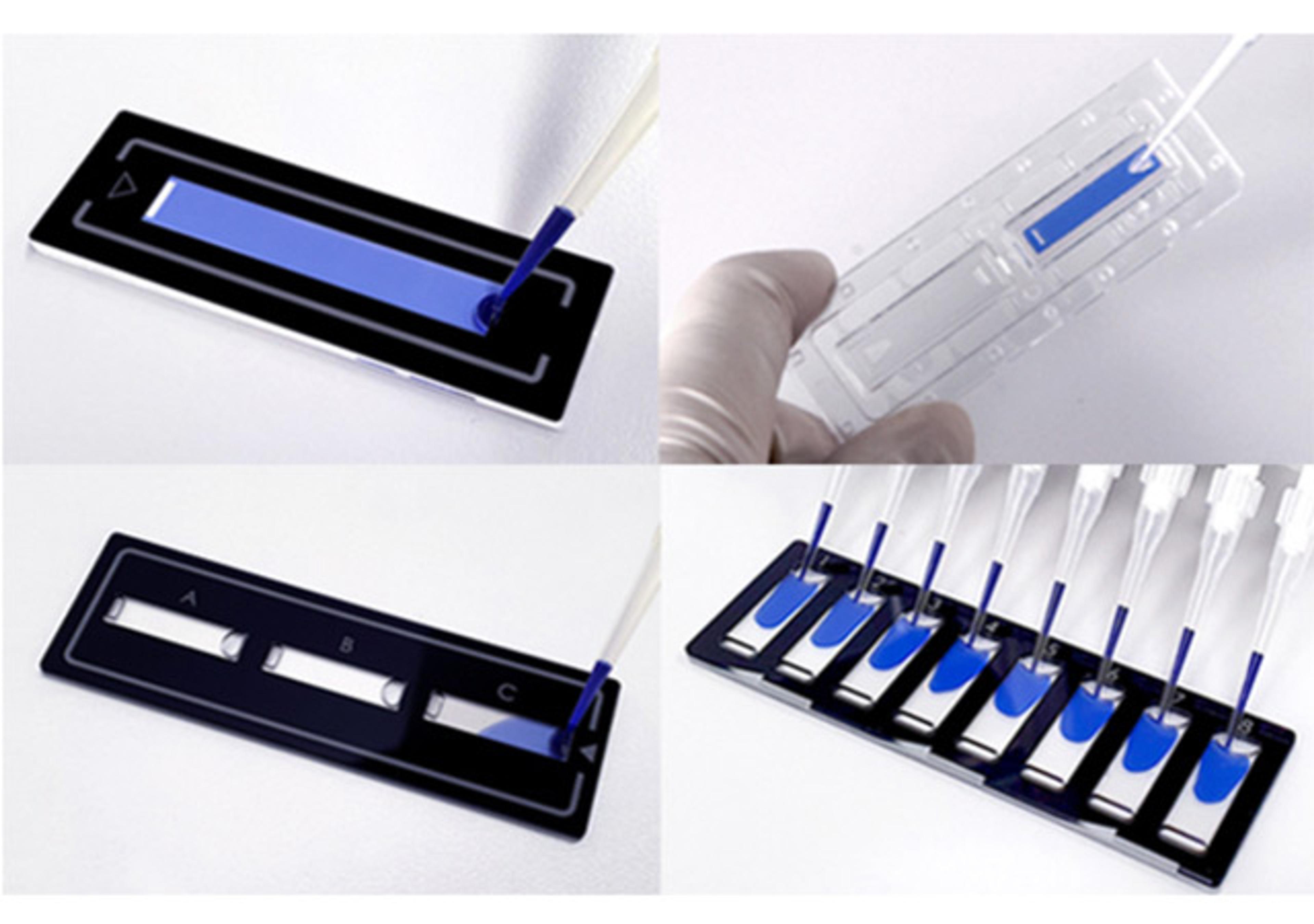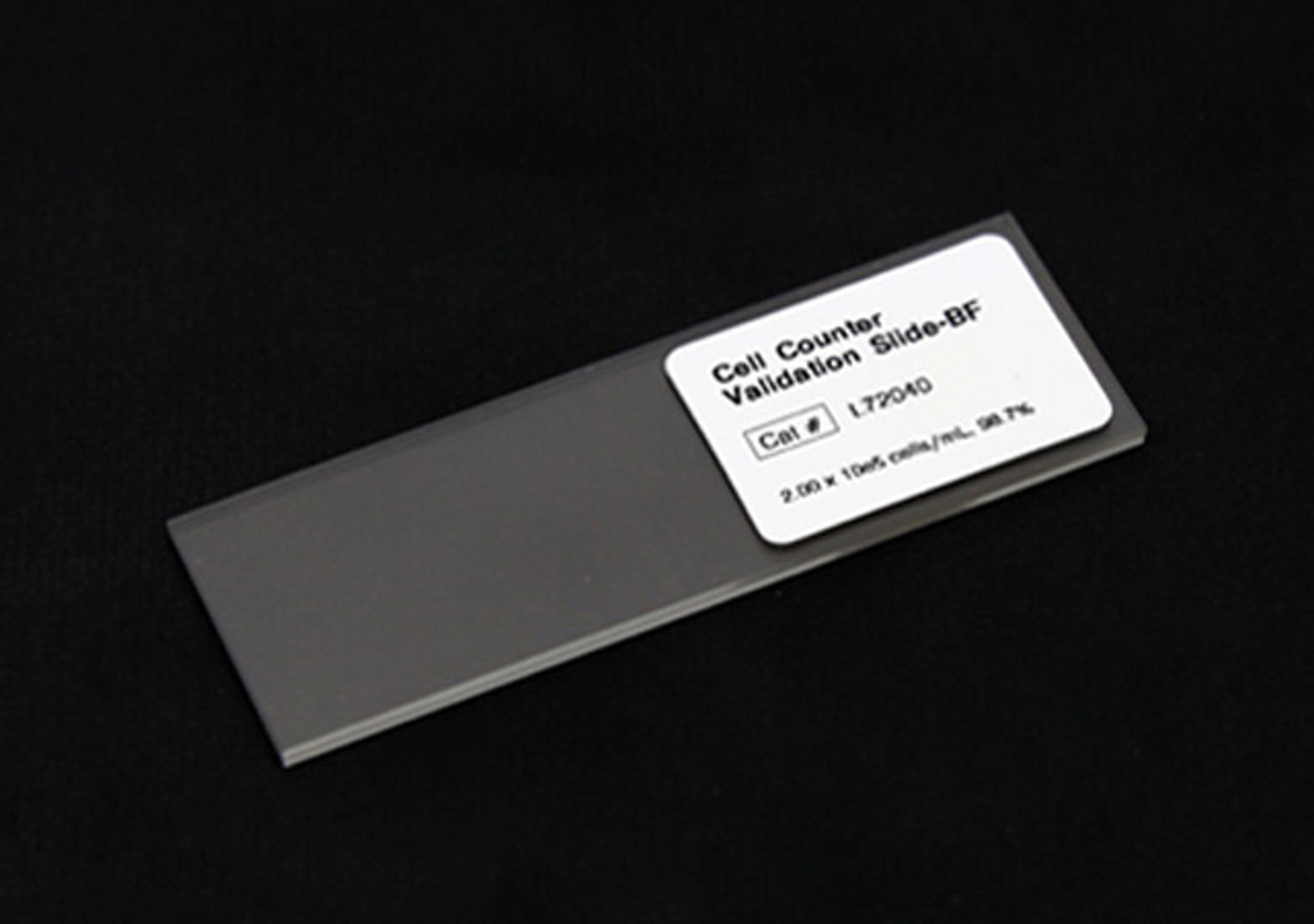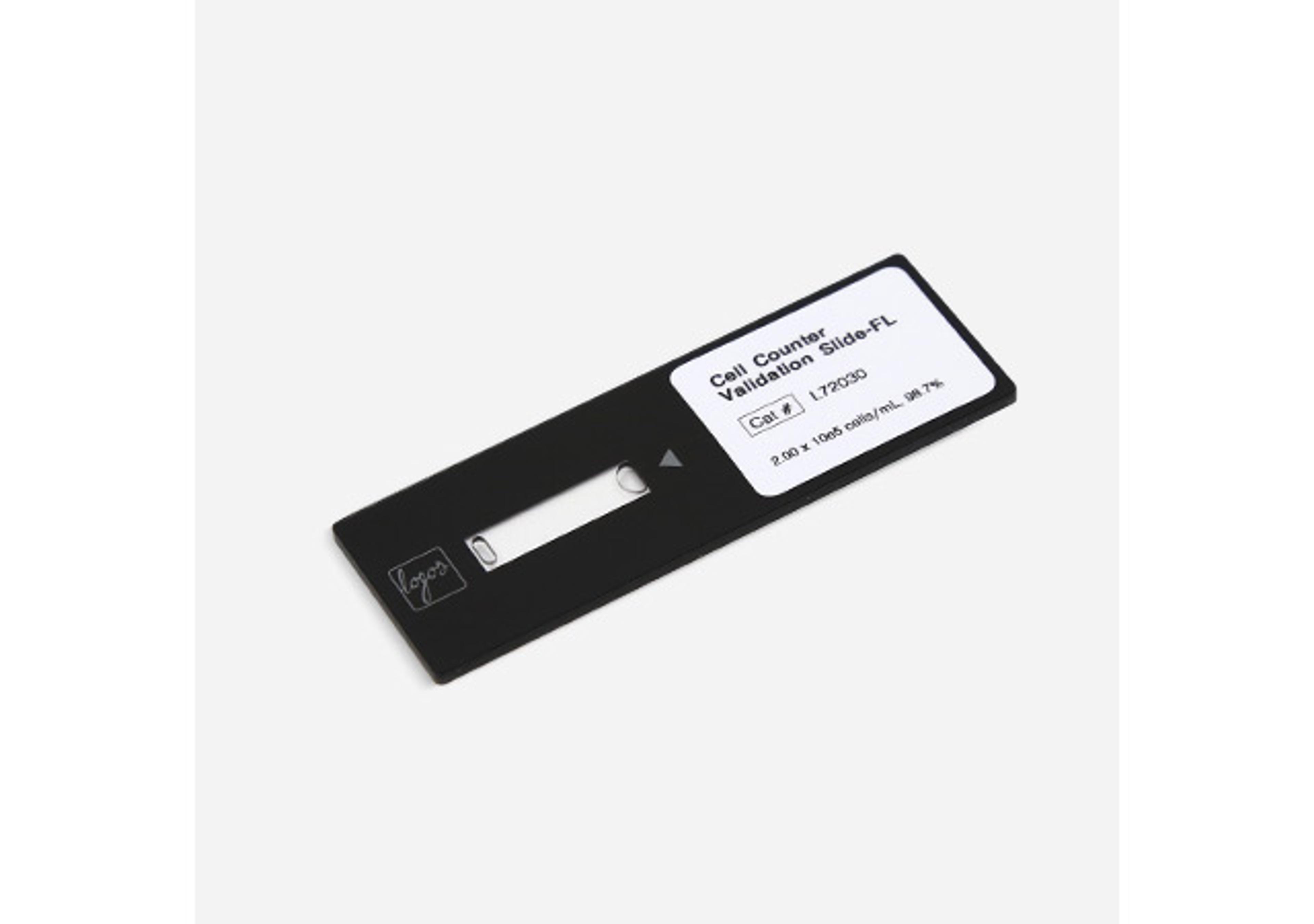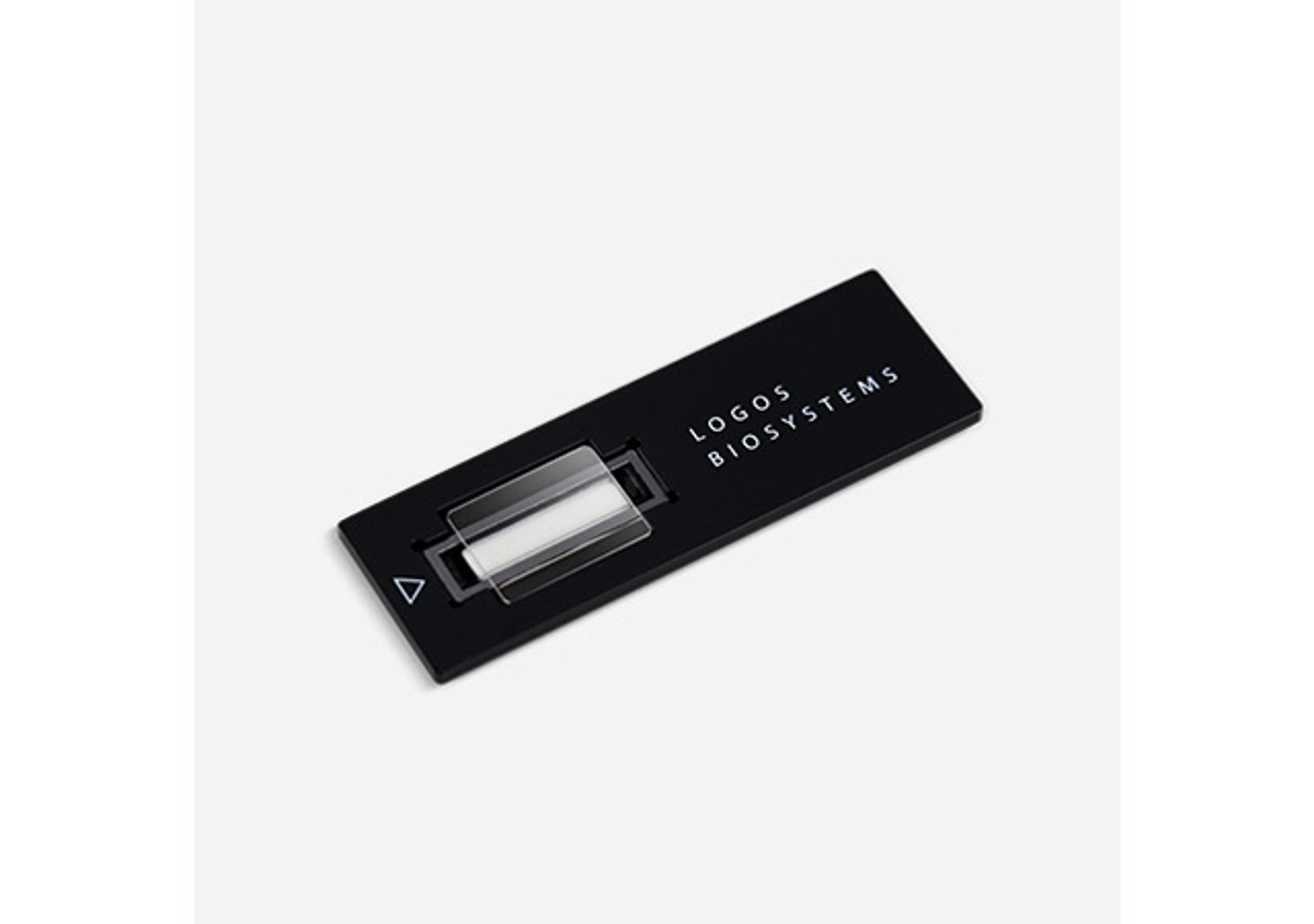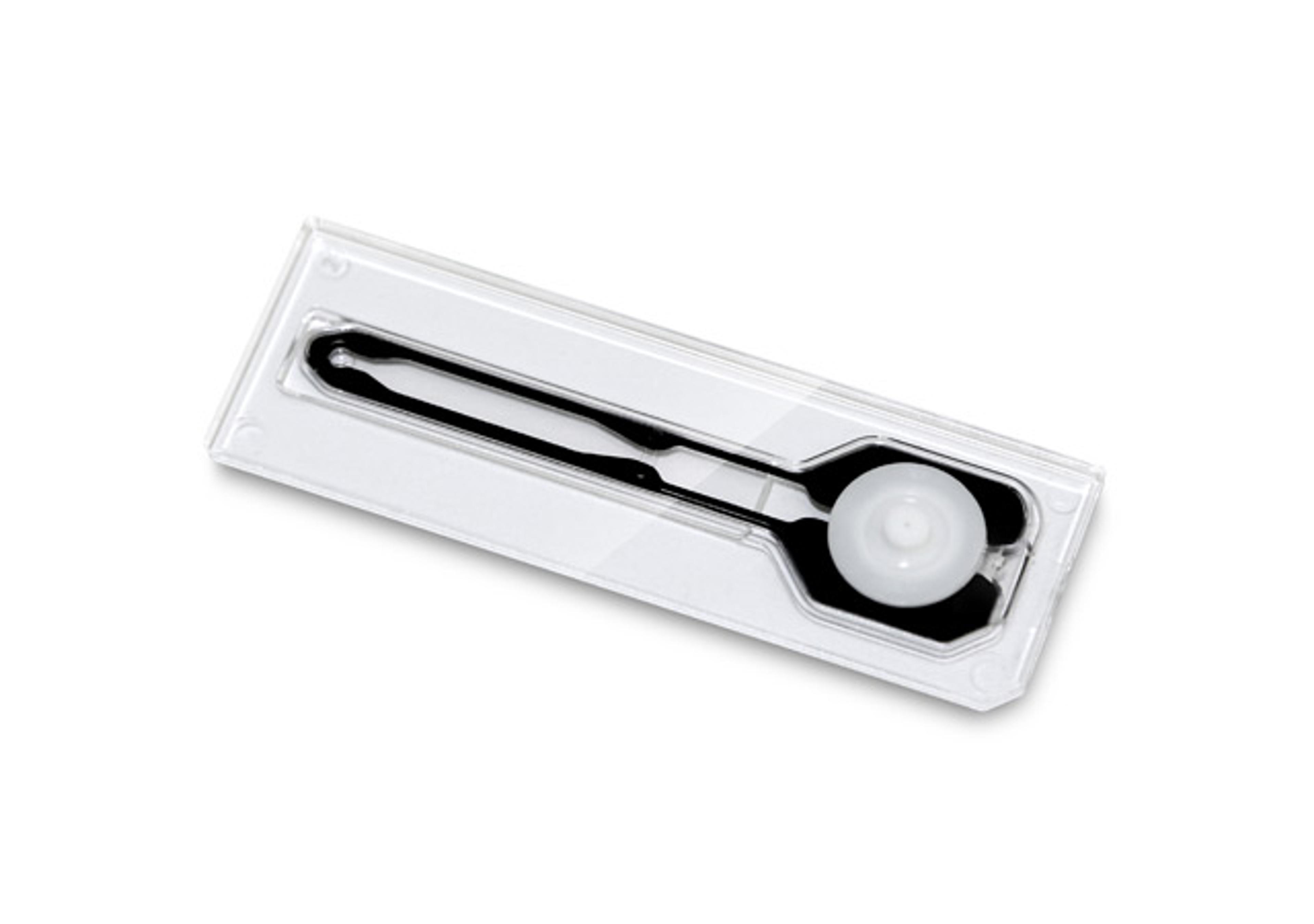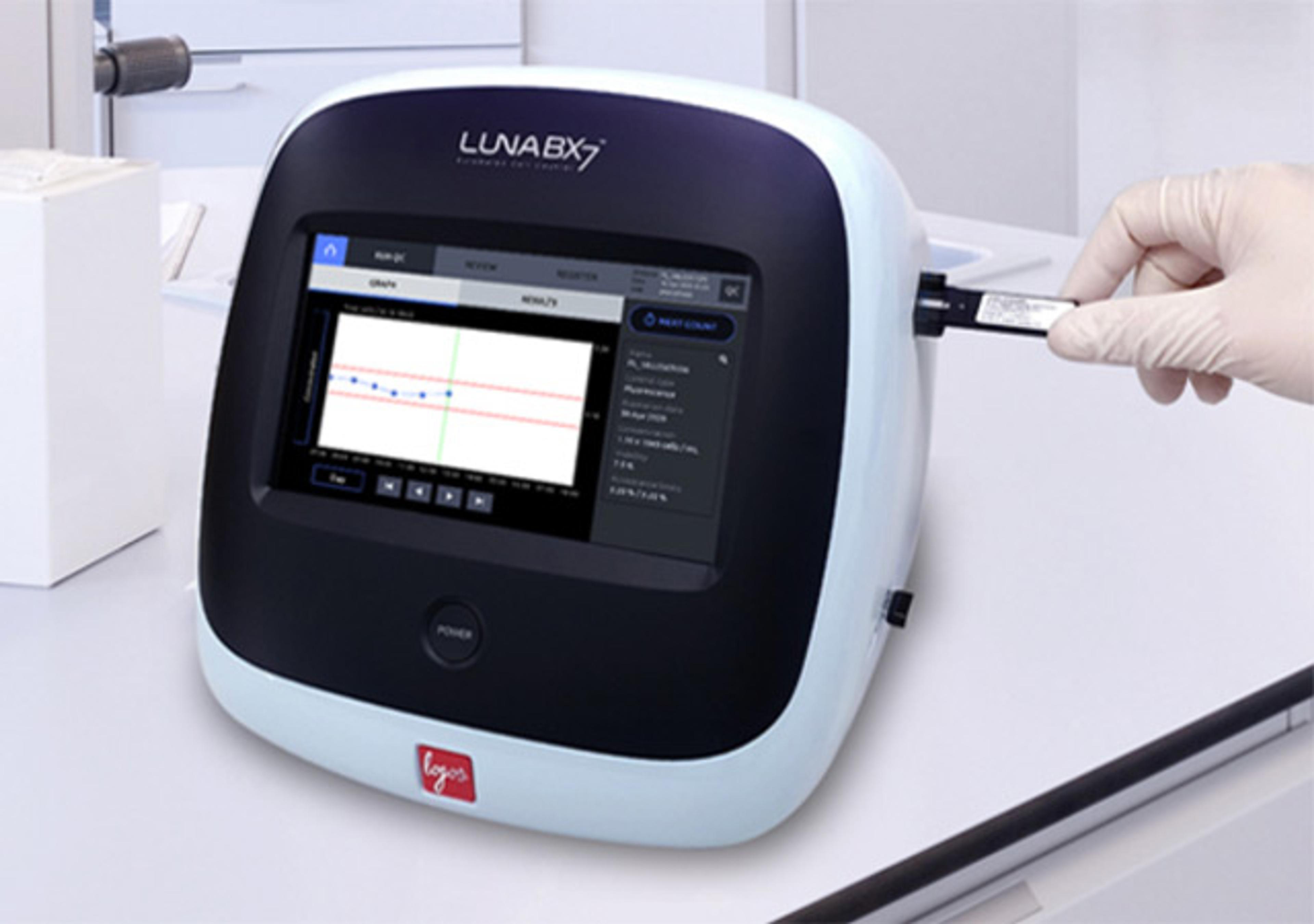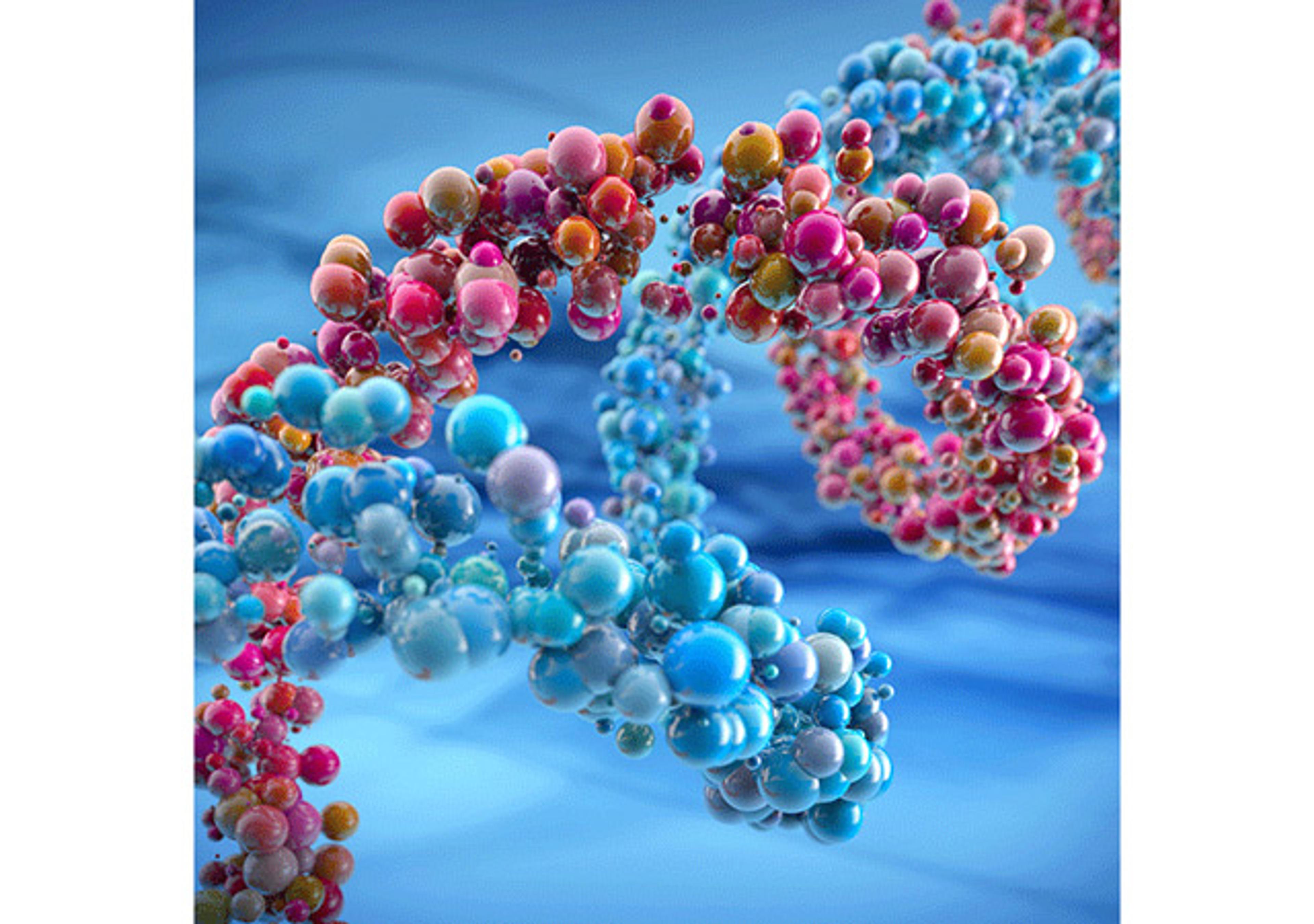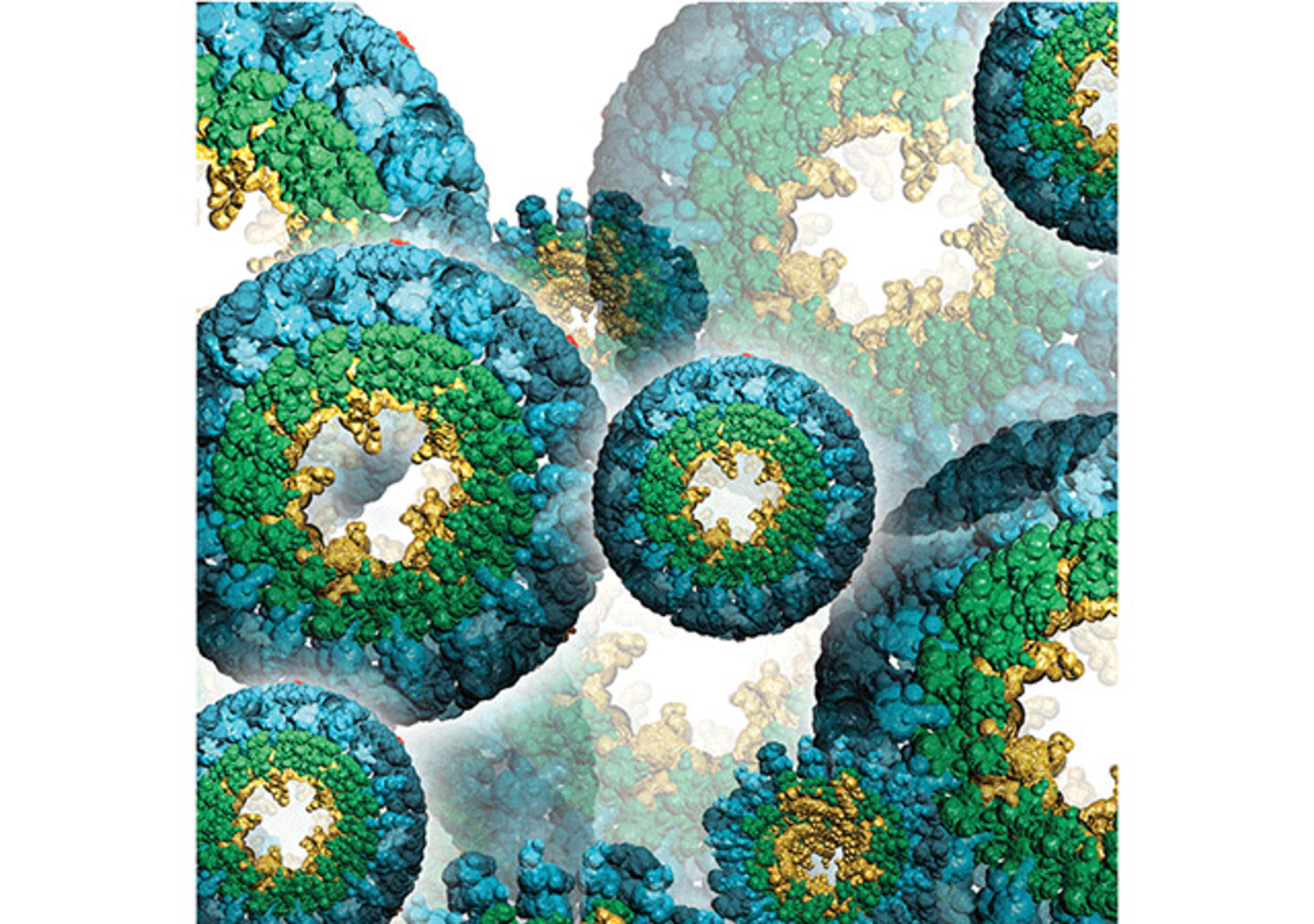Thermo Scientific™ Subcellular Protein Fractionation Kit for Cultured Cells
Subcellular Protein Fractionation Kit for Cultured Cells enables segregation and enrichment of proteins from five different cellular compartments.

The supplier does not provide quotations for this product through SelectScience. You can search for similar products in our Product Directory.
A reliable and efficient solution for extracting high-quality protein fractions
Cell biology
Thermo Scientific's Subcellular Protein Fractionation Kit is straightforward, yielding high-quality protein fractions from various cellular compartments. Its efficiency and versatility make it indispensable for cell biology research. Plus, it's cost-effective and convenient. Highly recommended!
Review Date: 18 Apr 2024 | Thermo Fisher Scientific
Great product.
Protein extract from cultured cells
The procedure is very easy and fast. Results are reliable and reproducible.
Review Date: 21 May 2021 | Thermo Fisher Scientific
Subcellular Protein Fractionation Kit includes a combination of reagents for stepwise lysis of cells into functional cytoplasmic, membrane, nuclear soluble, chromatin-bound and cytoskeletal protein fractions in less than 3 hours. Extracts from each subcellular compartment generally have less than 15% contamination between fractions, which is sufficient purity for most experiments studying protein localization and redistribution.
The Subcellular Protein Fractionation Kit for Cultured Cells contains four extraction buffers, a stabilized nuclease and Thermo Scientific Halt Protease Inhibitor Cocktail. Each kit has enough reagents to fractionate 50 cell pellets of 20 µL each, equivalent to approximately 2g of cell paste.
Features:
- Concise—extract functional cytoplasmic, membrane, nuclear soluble, chromatin-bound and cytoskeletal protein fractions from mammalian cultured cells in less than 3 hours
- Convenient—perform a simple procedure without using ultracentrifugation over gradients
- Cultured Cells—developed and optimized for use with cultured mammalian cells
- Compatible—use extracts for downstream applications such as protein assays, Western blotting, protein assays, electrophoretic mobility shift assays, reporter-gene and enzyme-activity assays.


